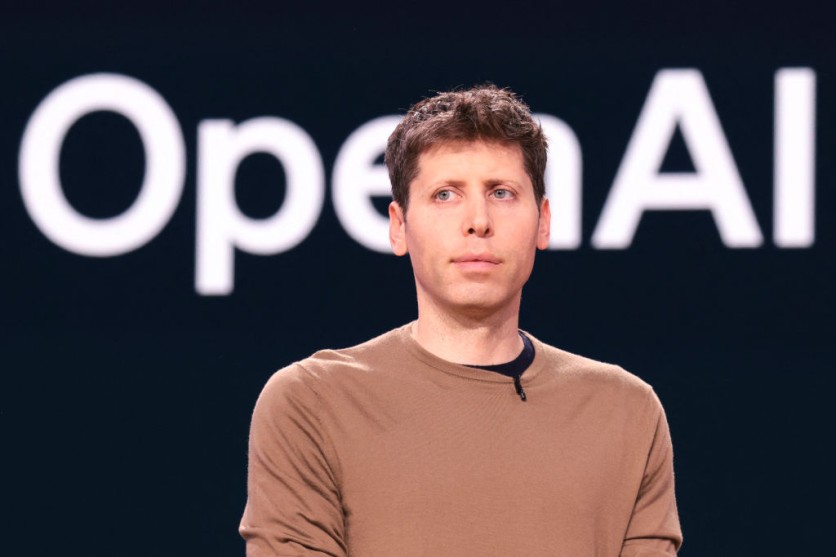OpenAI acquired workplace video collaboration startup Multi, previously known as Remotion. About five of Multi's employees will join OpenAI after the transaction, according to sources.
After July 24, 2024, Multi's CEO and co-founder, Alexander Embiricos, will shut down the platform. In his blog, he thanked users and stated that they are "beyond excited" for Multi joining OpenAI. "We enjoyed creating with you and learned a lot," he stated, as reported by TechCrunch.
Embiricos, an ex-Dropbox product manager, and co-founder Charley Ho, an ex-Google software engineer, created Multi, a Zoom-based remote team collaboration platform. Multi allowed up to 10 users to communicate via screen sharing, had customizable shortcuts, and automatically linked code, drawings, and documents.
Multi received $13 million from Greylock and First Round Capital before its purchase.
OpenAI's Income to Surge This Year
This acquisition fits OpenAI's aim of investing extensively in enterprise solutions. OpenAI said that ChatGPT's corporate tier had approximately 600,000 users, including 93% of Fortune 500 companies.
OpenAI partnered with PwC to resell its tools in May. The previous month, it launched a business-focused bespoke AI model tuning and consulting program.
OpenAI's revenue is expected to exceed $3.4 billion this year because of these enterprise projects, according to reports.
OpenAI's acquisition of Multi comes days after the ChatGPT developer bought enterprise analytics company Rockset to bolster its product retrieval infrastructure.
OpenAI's first acquisition will adopt Rockset's technology and workforce, as previously reported by TechTimes. The financial specifics of the deal were not disclosed.
OpenAI COO Brad Lightcap says Rockset's architecture "empowers companies" to transform data into "actionable intelligence," and the company is "excited" to offer these benefits. Rockset CEO Venkat Venkataramani revealed in a blog post that Rockset will join OpenAI to help solve AI apps' "hard database problems" with its retrieval architecture.
The integration would improve OpenAI's real-time data processing and vector search, enabling AI models to respond faster and more precisely. OpenAI sells technologies that help companies index and search data rapidly.
Read Also : Hong Kong Leads Asian Nations in Crafting Bitcoin Regulations Amid $2.26 Trillion Crypto Boom

Venkataramani said Rockset will progressively remove clients without "immediate change." According to Bloomberg, many Rockset employees will join OpenAI.
OpenAI has not disclosed the Rockset acquisition details. Earlier this year, investors bid $86 billion for OpenAI.
Former Meta engineers founded Rockset, a real-time search and analytics database. Companies employ AI for chatbots and anomaly detection. According to the article, Greylock, Sequoia, and HPE's venture capital arm gave Rockset $105 million last year.
ChatGPT is getting new features and AI models from OpenAI to compete with Google and Anthropic. According to reports, OpenAI is developing a search engine to rival Google and Perplexity.
OpenAI CTO Murati Says AI is a Collaborative Tool, Not a Threat
In other updates, OpenAI Chief Technology Officer Mira Murati dismissed worries about AI's influence on creative professions, saying AI may replace some vocations that were always replaceable. Murati stressed AI's collaborative potential in creative domains, boosting education and creativity at a Dartmouth University presentation.
At Cannes Lions, Murati predicted a future where humans and AI collaborate. Murati thinks generative AI like OpenAI's ChatGPT and Sora will assist human labor, despite employment losses, as reported by PCMag.
After ChatGPT's debut, fears about AI replacing Hollywood, game development, and voice acting employment have increased. However, Murati noted that AI may create jobs and minimize tiresome chores. AI can help brainstorm, but copyright constraints prevent it from producing completed items.
She believes that some creative jobs that should not have existed "maybe will go away."
Google and Intel are studying AI to automate various occupations, including software developers and cybersecurity specialists.
Related Artricle : Shopify's AI Tools Like Image Generator, Sidekick Assistant Now Available to More Users

ⓒ 2025 TECHTIMES.com All rights reserved. Do not reproduce without permission.


![Best Gaming Mouse For Gamers With Smaller Hands [2025]](https://d.techtimes.com/en/full/461466/best-gaming-mouse-gamers-smaller-hands-2025.png?w=184&h=103&f=6fd057ef777bd39251d4e7e82e9b23f1)

